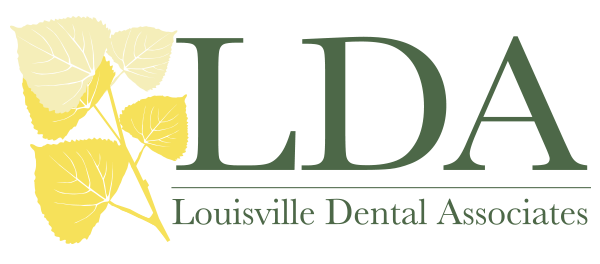Busting Common Myths About Your Mouth

The health of your mouth can say a lot about the overall health of your body. Because the mouth acts as a portal to the rest of the body, what happens in your mouth can determine how the rest of your body feels and whether you are at risk of developing certain diseases and infections.
If you’re like most people, you probably don’t give your oral health too much thought other than to brush and floss regularly. And while you’re probably familiar with tooth decay, cavities, and gum disease, you might not realize what other types of bacteria can live in your mouth. As your premiere general dentist in Louisville CO, the dentists and staff at Louisville Dental Associates work hard to make sure you have the best information on mouth and oral health
The average person has several billion bacteria in their mouth at any given time, and possibly more bacteria than people on the planet depending on how recently you brushed. Researchers have identified over 700 different kinds of bacteria species that dwell in people’s mouths. While most of this bacteria is harmless, this staggeringly high number helps to underscore the complexity of your mouth.
Humans are actually not alone when it comes to the number of bacteria that live in our mouths. The mouths of both dogs and cats contain just as many bacteria, and the old notion that a dog’s mouth is cleaner than a human’s is simply untrue. In fact, there are roughly 100 different types of germs that live in the mouths of our favorite household pets that can make people sick.
Here are some other myths about the health of your mouth that many people mistake as true.
Five Second Rule
As the old adage goes, any piece of food that falls on the floor that’s picked up in under five seconds is okay to eat. While this might sound good to germaphobes, the five second rule is actually arbitrary. Food beings to pick up germs immediately upon hitting the floor, and considering the types of bacteria that can live on hard surfaces, your better off just throwing it way and eating something else.
Kiss Connection
Another popular rumor is that a person can get gum disease by kissing someone who already has the condition. Fortunately, periodontal disease is not contagious, and the conditions that cause the disease take time to develop. However, someone who has periodontal disease probably doesn’t take very good care of his or her oral health. If the person doesn’t brush and floss regularly, their mouth is teaming with harmful bacteria, called plaque, that causes tooth decay and gum disease. Plaque can be transferred through exchanging saliva, so kissing someone who suffers from periodontal disease will increase your need to brush and floss regularly.
It’s Okay to Share
The Centers of Disease Control and Prevention recommends that you should never share a toothbrush with someone else. The CDC claims that exchanging bodily fluids by sharing a toothbrush places each person at greater risk for infections. It’s not just sharing toothbrushes that can spread disease. Sharing lipstick, drinking glasses, band instruments, and any other item that goes near your mouth can also freely pass along germs.
Keep Your Brush Covered
While it might make sense to keep your toothbrush covered while not in use, you’re actually potentially making your brush dirtier than if you leave it out in the open. Placing a wet brush away in a covered space prevents air for from reaching the brush. This causes the brush to stay damp longer. Cool, damp spaces allow germs to fester and grow. So leave your brush out to air dry in your medicine cabinet.
